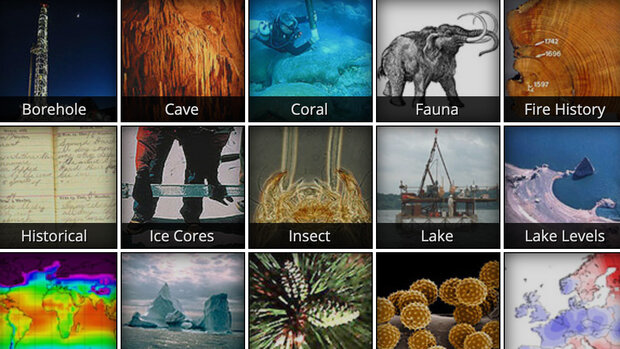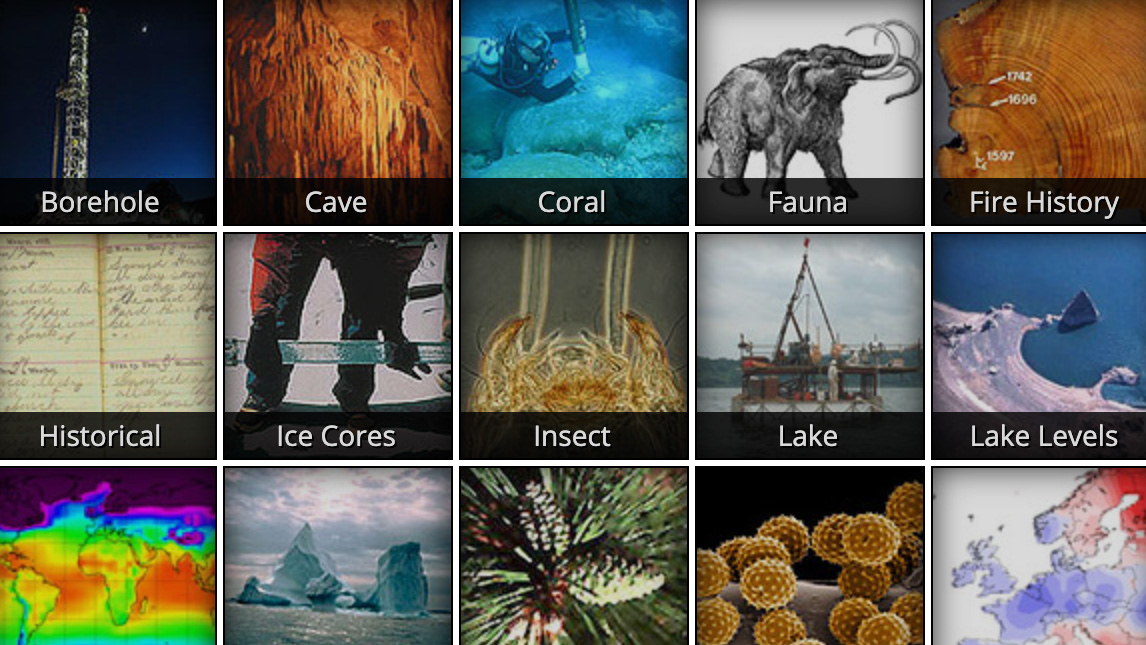Some organisms and environments produce natural records of the past. Paleoclimatology is the study of past climate from these natural records; these records provide evidence of climate conditions from hundreds to millions of years ago.
Where do these data come from?
Paleoclimatology data are derived from natural sources such as tree rings, cave deposits, ice cores, fire history, coral growth bands, pollen, stalagmites, and ocean and lake sediments. These proxy climate data extend the weather and climate information archive by hundreds to millions of years. This is the world's largest archive of paleoclimatology data, with contributions from the international scientific community. The data include geophysical or biological measurement time series and some reconstructed climate variables such as temperature and precipitation.
-
What can I do with these data?
Search the database for types, dates, or specific locations. View results online, or download data to map or graph.
- Use tree ring data to reconstruct drought patterns of the past
- Use borehole data to reconstruct temperature patterns in the Arctic tundra
How do I use the site?
Use the selection menus to:
- Select the data type
- Select the region of interest
 Click to see more detail
Click to see more detail
